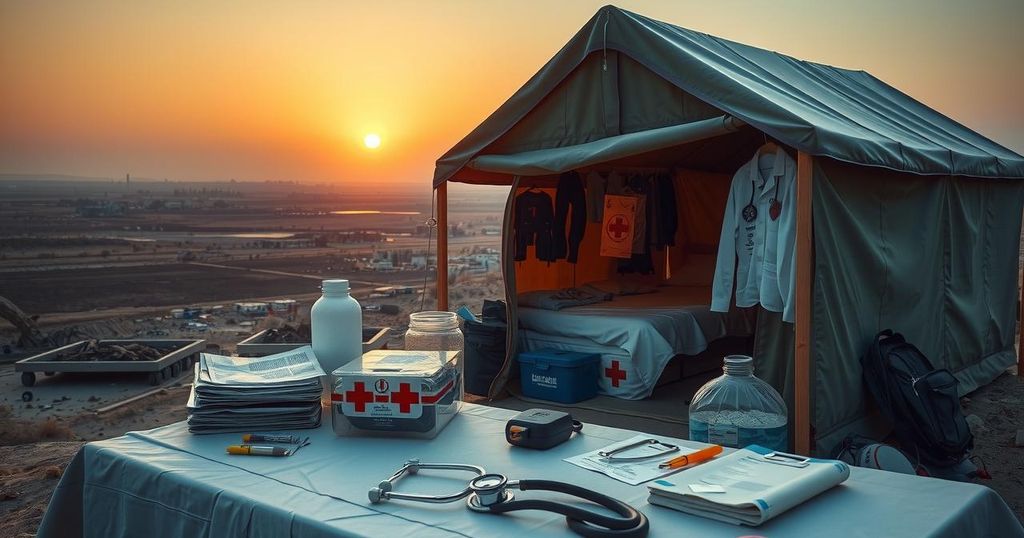Healthcare Workers in Sudan: A Testament to Resilience Amidst Conflict

Amid the ongoing conflict in Sudan, healthcare providers like Dr. Safaa Ali risk their lives for patient care. Nearly 90% of hospitals are closed with many medical workers attacked. Al-Nao hospital remains operational despite significant challenges, supported by devoted volunteers and professionals committed to their duties despite personal sacrifices.
In the wake of the intense conflict that erupted in Sudan in April 2023, healthcare providers in Khartoum have faced harrowing dilemmas. Dr. Safaa Ali exemplifies this struggle, choosing to remain and serve her patients despite the risks, not having seen her family since she made that choice. Two years into the hostilities involving the regular army and the paramilitary Rapid Support Forces, Dr. Ali stands as one of the few obstetricians left, enduring daily dangers to ensure safe childbirth for women in Sudan.
The medical workers in Omdurman, a city adjacent to Khartoum, have shown remarkable resilience in the face of dire challenges. The hospitals are under siege, with bombing and gunfire interrupting the care they strive to provide. Despite the violence, Dr. Ali and her colleagues continue to arrive at the hospitals daily, driven by their commitment to their patients. Bothaina Abdelrahman, a janitor with 27 years of service, exemplifies this dedication, walking hours to ensure she is present for work.
The ongoing conflict has severely undermined the healthcare system, with numerous accusations against health professionals regarding collaboration with combatants. Reports from medical charity Doctors Without Borders indicate that health workers have been subjected to violence, including attacks and kidnappings. The situation is dire, with approximately 90 percent of hospitals in conflict zones shuttered, while at least 78 health workers have lost their lives due to the war.
Al-Nao hospital has remained a crucial facility during this turmoil, enduring direct attacks but continuing to operate. Khansa al-Moatasem, the head of the nursing team there, expresses pride in her work, emphasizing the hospital’s commitment to care despite the challenges. Dr. Ali has also taken extraordinary measures to maintain care, establishing mobile clinics and reviving maternity services amid the destruction.
As the conflict persists, the atmosphere in hospitals remains fraught with danger despite some semblance of normality returning. Local volunteer groups have stepped in, providing essential support amid the chaos, although they often lack adequate resources. Dr. Fathia Abdelmajed, a pediatrician, has taken on a leadership role in the overwhelmed Al-Buluk hospital, finding fulfillment in training young volunteers who are eager to serve their community during this crisis.
The dedication of healthcare workers in Khartoum amidst ongoing conflict underscores the critical role they play in preserving life under extreme conditions. Despite facing personal sacrifices, physical dangers, and systemic challenges, individuals like Dr. Safaa Ali and her colleagues exemplify resilience and unwavering commitment to patient care. As hospitals struggle to function in a war-torn climate, their efforts, supported by local volunteers, highlight the profound dedication of medical professionals in Sudan and the essential services they provide under extreme circumstances.
Original Source: www.rfi.fr








